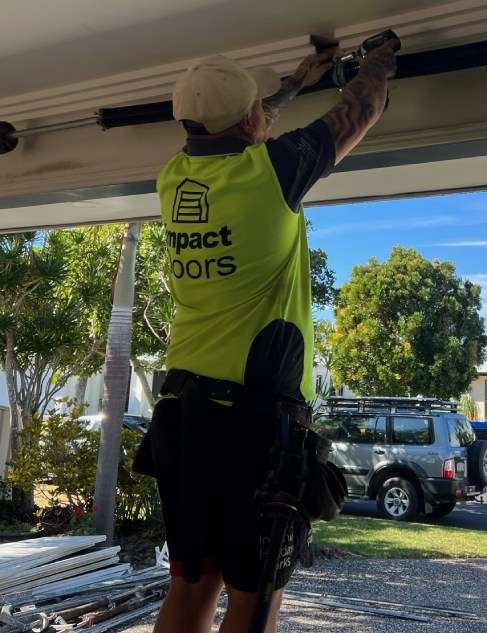Introduction
In the ever-evolving world of home improvement and energy conservation, garage doors often remain an overlooked aspect. While many homeowners focus on insulation for their walls and roofs, the garage door can significantly impact overall energy efficiency. Whether you're considering a new installation or maintenance on your existing door, understanding how it contributes to energy efficiency is crucial. This article delves deep into Garage Doors and Energy Efficiency: What You Should Know, offering insights that can help you make informed decisions.
Why Are Garage Doors Important for Energy Efficiency?
Garage doors play a pivotal role in maintaining the temperature of your home. A poorly insulated garage door can lead to higher energy bills, especially during extreme weather conditions. If you’ve ever noticed your heating or cooling system working overtime, it might be time to reassess your garage door’s efficiency.
The Role of Insulation in Garage Doors
What Type of Insulation Is Best for Garage Doors?
The insulation type you choose can significantly affect the energy efficiency of your garage door. Most commonly, you'll find:
- Polystyrene Foam: Provides good insulation but is less effective compared to polyurethane. Polyurethane Foam: Offers superior insulation and is often found in high-end models. Honeycomb Structure: Lightweight and offers decent insulation; however, it may not be as efficient.
When selecting an insulated garage door, consider your climate and how much you use your garage space.
How Does a Garage Door Opener Affect Energy Efficiency?
Can Smart Garage Door Openers Save Energy?
Absolutely! Smart garage door openers not only provide convenience but also enhance energy efficiency. They allow for better control over when the garage is opened or closed—ensuring minimal heat loss during winter months.
Understanding Garage Door Springs
Why Are Garage Door Springs Vital for Functionality?
Garage door springs are essential parts that support the weight of the door, making it easier to lift and lower. Properly functioning springs ensure that your garage door operates smoothly, which means less strain on the opener—leading to better energy use over time.
Common Issues with Garage Doors
What to Do When Your Garage Door Won't Close?
Experiencing issues like a garage door that won’t close can be frustrating. This could be due to:
- Obstructions in the track Misaligned sensors Malfunctioning remote controls
Perform basic troubleshooting first before calling a professional for garage door service.
Essential Garage Door Maintenance Tips
How Often Should You Service Your Garage Door?
Regular maintenance will keep your garage door running efficiently. Aim for at https://impactdoors.net.au/garage-door-repair/moreton-bay/margate-qld/ least once a year; however, if you frequently use it or live in an area with extreme weather conditions, biannual checks may be beneficial.
Lubricate Moving Parts: Regularly lubricate rollers, hinges, and tracks. Inspect Springs: Check for any wear or rust. Test Balance: Disconnect the opener and manually lift the door; it should stay up without assistance.The Impact of Weather Stripping
How Effective Is Weather Stripping on Energy Costs?
Weather stripping is one of the simplest ways to seal gaps around your garage door that may let air escape. By ensuring a tight seal when closed:
- You maintain consistent temperatures. Reduce energy costs by preventing heat loss in winter months.
Choosing Energy-Efficient Materials
Which Materials Make the Best Insulated Garage Doors?
When choosing materials for your new garage door, consider:
- Steel: Durable with excellent insulation when paired with foam. Fiberglass: Lightweight with good thermal properties. Wood: Beautiful but requires more maintenance and usually less efficient unless well-insulated.
Each material has its pros and cons—so weigh them according to your needs.
Upgrading Your Existing Garage Door
Is It Worth Upgrading to an Energy-Efficient Model?
If you have an older model, upgrading may not just save on energy costs but also increase property value. Modern insulated doors reduce drafts significantly compared to their older counterparts.
The Cost vs. Savings Equation
How Long Will It Take to Recoup Upgrade Costs Through Savings?
On average, homeowners see a return on investment within 3–5 years depending on usage patterns and local climate conditions. Always factor in potential savings against upfront costs when making decisions about upgrades.
Conclusion
As we've explored throughout this article on Garage Doors and Energy Efficiency: What You Should Know, it's clear that investing time and resources into ensuring your garage doors are efficient pays off both environmentally and financially. From understanding insulation types to knowing when to call for garage door service Moreton Bay, taking these steps will lead you towards reduced energy consumption and lower bills while enhancing comfort in your home.
FAQs about Garage Doors and Energy Efficiency
What is the best type of insulation for my garage door?
Polyurethane foam provides superior insulation properties compared to other materials like polystyrene foam or honeycomb structures.
How can I tell if my garage door springs need replacement?
If you notice excessive noise when operating or difficulty lifting the door manually, it’s likely time for a replacement.
What should I do if my garage door won't close?
First check for obstructions in the track or misaligned sensors before considering more complex issues that may require professional assistance.
How often should I perform maintenance on my garage door?
At minimum once a year; however, consider biannual checks if you frequently use it or live in areas with extreme weather conditions.
Are smart garage door openers worth the investment?
Yes! They provide added convenience while helping improve energy efficiency by allowing better control over opening/closing times.

What are common signs that my garage doors are inefficient?
Rising utility bills during seasonal changes (especially winter) often indicate poor insulation or malfunctioning mechanisms needing attention.
By focusing on these aspects regarding "Garage Doors and Energy Efficiency," you're not just improving functionality—you’re investing in long-term savings!